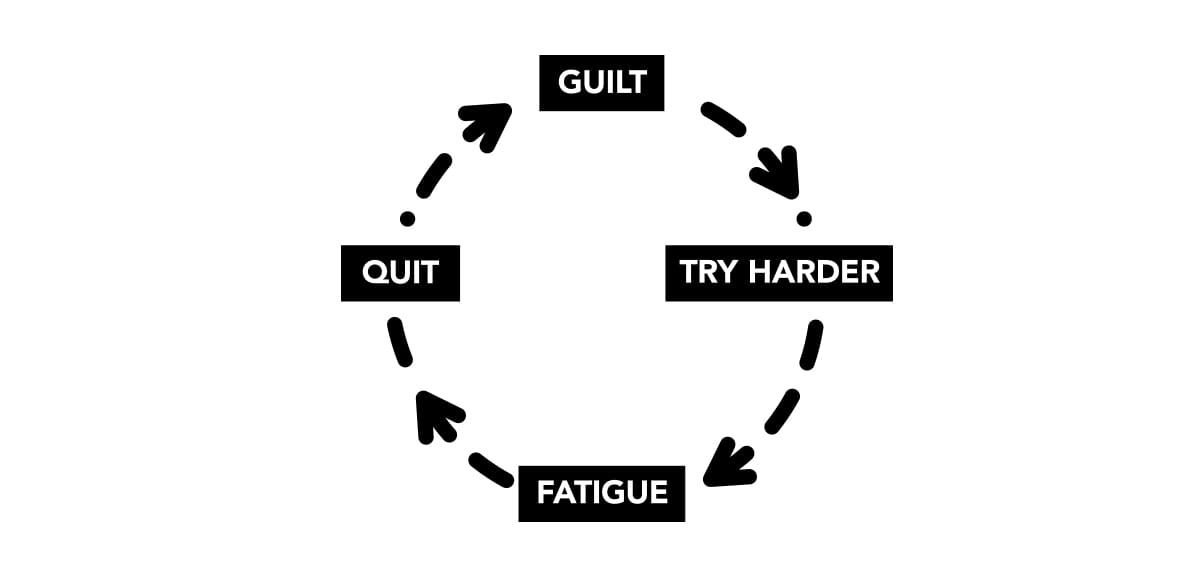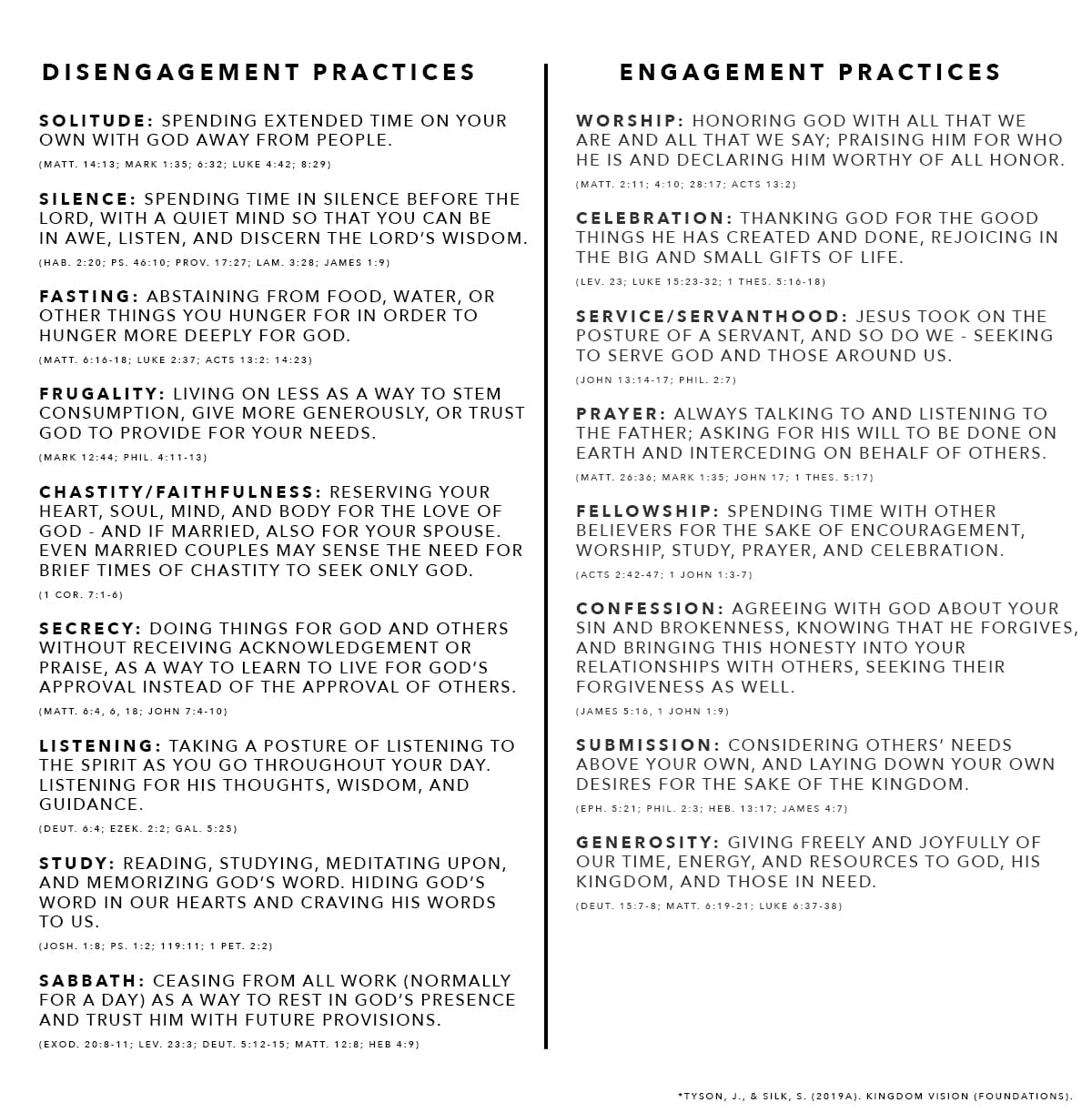Welcome to the New Year! There’s so much to celebrate as we head into a new year. Another chapter. The hope of what’s ahead. A reset. New vision. New goals. BUT before we establish those things, we must have a conversation on prioritization.
Western culture is all about the grind, the hustle, “I’ll sleep when I’m dead.” Literally back in 2014 one of my friends took a photo of a calendar displaying the month of September with the letters “SEP” X’d out and the word “Hustle” written over it in red sharpie marker.
Our friend group freaked out! We thought it was the baddest thing ever & we all adopted it. Writing it on our journals, whiteboards, calendars, planners, & posting it on social media. ”Headed to the coffee shop at 6:30a tomorrow morning. Want to join? Hustletember, bro!” We were going to crush the rest of the year & take no prisoners!

I truly believe there’s nothing wrong with hard work, but it’ll destroy your life and what you believe about yourself when you fall into the easy trap of finding your identity in it.
Busyness is the key thing that eventually leads to people’s ultimate dysfunction and demise.
Don’t believe me? Look at all the major scandals & falling of leaders in the church in the past 7 years. Lentz, Driscoll, Hybels, MacDonald, & so many more – these types of situations begin by individuals operating outside of their capacity in a system that prioritized hustle over health. Praise, idolization, and lack of accountability persisted & a shadow side took over.
Obviously, this is a major major major oversimplification of these individual stories. I feel and empathize with everyone involved too. I would even go so far as to say that WE, the global church, allowed this to happen by subscribing to systems that perpetuate these types of cultures.
But at the end of the day, when it comes down to it, hustle, busyness, and the unanchored life leads to destruction. Even in Kingdom work.
I love this excerpt from Dr. Michael Zigarelli’s research:
“It may be the case that (1) Christians are assimilating to a culture of busyness, hurry and overload, which leads to (2) God becoming more marginalized in Christians’ lives, which leads to (3) a deteriorating relationship with God, which leads to (4) Christians becoming even more vulnerable to adopting secular assumptions about how to live, which leads to (5) more conformity to a culture of busyness, hurry, and overload. And then the cycle begins again.”
Not getting caught up in the culture of busyness is one of the things Jesus speaks to in the classic story of Mary & Martha. “Mary has chosen what is better” (Luke 10:42a).
So what do we do about it?
Aggressively Protect Your Spiritual Formation Practices like Your Life Depends on it (because it does)
Sounds extreme, but I can’t stress it enough.
We’ve replaced spiritual formation with creative marketing strategies and reality TV gimmicks; times of personal theological development & tending to the inner workings of our souls with Western business practice research & social-media-induced comparison and personal image addictions; growing deep communities rooted in discipleship with shallow global audiences itching for the next great experience they forget about the moment they leave and the high wears off.
And we wonder why people are capping out in their spiritual growth & we ministry leaders are exhausted in the process.
Too many of us are approaching ministry with a borderline non-existent focus on consistent practices made for shaping our souls more into the image of Jesus.
John Mark Comer puts it this way, “If you can’t say, ‘Look at my life & organize your day-to-day how I do, then you have no business in [ministry] leadership.’”
Yes, the aforementioned things that we’ve replaced our formation practices with are not wrong in and of themselves, but they should never be focused on at the expense of our own spiritual formation. The lack of time or ability to do so is not just the “sacrifice of being in ministry” either.
When we look at the life of Jesus, we see time and time again he fought to ensure He was creating space to be spiritually formed.
Why I bring these up is because they were the things I found myself exchanging my personal spiritual formation life with that led to immense burnout & identity crisis. My time of spiritual formation was quickly reading the bible a few times a week, an occasional devotional reading, worship music in the car on my way to the office, engaging as much as I could in the services I attended or led, and not much more. And I wasn’t alone in this either.
I shared stages with many who were in the same internal place too.
JMC speaks of his experience like this, “I planted a church that became a mega-church really fast…All I ever knew was large church, hustle, hard work…I got a few years into the church plant and from the outside, everything was looking great. A lot of people there. All that by those metrics, but I started to realize people were not experiencing the depth of transformation that we were all gearing for…[simultaneously] I just burned out. I was in my early 30s, I was on-edge, all sorts of emotional issues. My own growth and maturity had stalled out. There was no affair…I was just unhealthy. Stressed out. Not very happy. Not very pleasant to be around. Critical. Agitated. All those things of ’church, read your bible, and pray’…were just not enough. So I resigned…split up all of the campuses into their own individual churches…took one of the campuses…and began this rigorous pursuit of formation…I still have so far to go, but for the first time in my adult life I feel like I’m moving again.”
Maybe, like John Mark, you identify with noticing yourself stressed out, harsh, unhappy, critical, unpleasant to be around, or easily agitated. Could it be because you’re living unanchored in spiritual formation?
Or maybe you’re thinking to yourself, “Well, God’s still moving in my life and ministry & He wouldn’t bless these things if my priorities were off.” So tempting to believe, but it’s the furthest from the truth.
There’s a difference between spiritual gifts & fruits of the spirit. You can move in a gift without being connected to the vine (Matt. 7:22). Moving in a gift is not an affirmation of the way you live or what you believe. Gifts are tools, fruits are proof.
“Vast numbers of well-intended folk have exhausted themselves in church work and discovered that these things did not substantively change the inner life. They found that they were just as impatient and egocentric and fearful as when they began lifting the heavy load of church work.” – Richard Foster
I’ve obviously been speaking to ministry leadership here, but this conversation is applicable to everyone, everywhere, no matter the vocation.
We have a spiritual formation crisis sweeping through the church.
We desperately need to be spiritually formed people & the work of ministry does not form you! You can participate in facilitating growth for others and simultaneously not be growing yourself. So we’re going to quickly talk about what it means to be spiritually formed & cover some spiritual formation practices, but before I do, this has to be said and understood…
Shame can not be your motivation for implementation! Otherwise, we fall into what John Ortberg calls “The Shame Cycle”

The reason we engage in spiritual formation is because of what it brings to our lives. Many times in my life I’ve been so disappointed in myself for not prioritizing the things that I know leads to life. It was a long battle for me to learn what it looks like to lay down shame and take up grace. Which can be tough to navigate too! Discovering the equilibrium between grace & effort.
“The tension is that we can’t be lazy and squander the call of God on our lives, but we also can’t be legalistic and moralize everything.” – Jon Tyson & Suzy Silk
It is one thing to know you lack spiritual formation & are in need of it. It’s another thing to know how to go about spiritual formation.
What is Spiritual Formation?
If you asked someone, “What’s the best way to go about spiritual formation?” I’m sure some combination of bible reading, prayer, worship, & church attendance would come up. Although very true and valuable, this doesn’t supplement the answer to the question completely.
Spiritual formation is all about engaging in practices that ultimately leads to deep internal transformation.
In their book, “Foundations vol. 2 – Kingdom Vision”, Jon Tyson & Suzy Silk say this: “When we talk about spiritual practices, there are men and women from the past two millennia who have devoted their lives to the study and development of spiritual practices. In general, these spiritual disciplines can be grouped into two categories: practices of disengagement and practices of engagement.
Disengagement – withdrawing from the busyness of life to commune with God.
Engagement – bringing the Kingdom of God into the world.”
This is what those practices are:

(if you have any interest in discovering more about these practices check out Foundations vol. 2 – Kingdom Vision or Jon Tyson’s Message on The Way of Practice)
We must regularly participate in both of these environments.
Disengagement without engagement is a life not only absent of the mandate Jesus gave to us through The Great Commission, but also lacks the depth & fulfillment that can only come through communion (I was going to say fellowship, but this isn’t the 90s and the internet hasn’t created felt boards yet so…).
Engagement without disengagement is a life not only destined for burnout, shadow-selves, & savior complexes but void of the true fulfillment that can only come in an intimate abiding relationship with Jesus. This is what your soul was made for, longs for, & you will be unfulfilled without its continual presence in your life.
This type of lifestyle is so easy to find ourselves in and think that it’s as God intended; especially when working in a ministry capacity. Disengagement can feel quite abstract & unmeasurable. It’s a lot easier to say I met with x-amount of people this week to talk with them about their lives and marriages & spent this many hours working on things for the church.
As Thomas Ashbrook so perfectly stated, “Joy may come from tasks accomplished and praise received, more than from intimacy and love with God…We can mistakenly believe that really hard work for God is the same as a really deep relationship with Him.”
This summarized so many years of my life in ministry, until the day Jesus called me into intimate disengagement with Him.
That’s what this entire conversation is all about: To engage in the better way that makes your soul come alive, effortlessly exudes the fruits of the spirit, leads you to freedom, replete with satisfaction, and entices this very desire in the hearts of everyone you interact with.
This is why we engage in and protect our spiritual formation practices: because of the beauty it brings to our lives.
Below is an incredible resource by Matt Nelson articulating what all of this looks like practically from the day-to-day all the way to the annual level as well as a tool on how to implement new rhythms in your life. This thing is a marathon, not a sprint. And it’s a marathon that will come with bumps, setbacks, and failures BUT as the infamous Pastor Denzel Washington said at the 2017 Image Awards, “Fall down seven times, get up eight.”
This fruit is worth the effort.
The pain is worth the payoff.
Your soul is worth the cost.
Let’s make 2021 a year where we rewrite the narrative of our souls & see others step into what their soul longs for and was made for: A life anchored in formation.
I can not recommend Foundations vol. 2 – Kingdom Vision by Jon Tyson & Suzy Silk enough. The language they give to not only the process of spiritual formation, but to the life of the believer at large is truly mind-blowing. Additionally, John Mark Comer’s book The Ruthless Elimination of Hurry does a fantastic job of providing tools and language for a transformed life. Both of these books played a major role in my spiritual formation journey. I’ve included links to those as well as other fantastic spiritual formation resources below.
“What rhythms do you need to develop this year that will lead to a transformed life?” by Matt Nelson
- Annual, monthly, weekly, & daily rhythms
Annual Ideas:
- Prayer/Planning retreat – getaway
- Men’s Retreat – Women’s Retreat
- Christian calendar – Advent, Epiphany, Lent, Good Friday, Easter, Pentecost
- Marriage – time of renewal (i.e. getaway, conference, retreat)
- Vacation/Retreat
- ??? ____________________________
Monthly Ideas:
- Extended times of prayer & fasting (Midweek, lunchtime, etc.)
- Serving opportunities (monthly or weekly)
- Time with mentors and/or spiritual directors, coaches, etc.
- ??? ____________________________
Weekly Ideas:
- Accountability group – Small group
- Church – Time of gathering together around the table, worship, & the word
- Gathering around the table with family/friends/people you love
- Sabbath – intentional times of rest and renewal (outdoors, sports, reading, replenishing activities)
- Family devotional time
- Date night with your spouse
- Personal development (book, podcast, etc.)
- ??? ____________________________
Daily Ideas:
- Devotional or Daily Office (2-3 times a day)
- Renewing your mind in the word of God (podcast, audio Bible, sermons, reading)
- Time of silence, reflection, prayer, and listening to the Spirit of God
- Renewing moments, people, and activities in your day
How to successfully implement new rhythms:
- Be strategic and specificWrite them down. Figure out the best approach, time of day, etc. Put them on your calendar.
- Make them attainableThese new rhythms should be challenging but not overwhelming or setting you up for failure.
- Make adjustments along the wayAs you go, you might learn what is working and what is not. Make changes. Find rhythms that best fit who you are.
- Protect them.Put them on your calendar. Protect them from everything and everyone who will try to take those moments away from you.
- Develop a level of accountabilityYou have to tell someone you will see on a regular basis and is committed to you and asking you about your rhythms
- Although this can be your spouse, I recommend having someone else as well.
- Persevere through the wallIt takes anywhere from 3-6 weeks for a new rhythm to become a new routine/discipline. Prepare yourself for the wall and be committed to persevering through it.
- Manage your expectationsYou will not receive some sort of great revelation every day. In fact, there may be days, weeks, or months where you don’t necessarily feel anything and yet you know these rhythms and your commitment to them are transforming your heart – mind – soul.
Additional Resources
The Ruthless Elimination of Hurry by John Mark Comer
Emotionally Spiritually Healthy by Pete Scazzero
Foundations vol. 2 – Kingdom Vision by Jon Tyson & Suzy Silk
Celebration of Discipline by Richard Foster
Practicing the Way by Bridgetown Church
You may also be interested in these related posts!
- Grow Your Worship Team with these 6 Proven Recruitment Strategies (Post-Quarantine)
- Tasha Cobbs-Leonard’s 4 Keys to Worship Leading that Don’t Require Talent [PODCAST]
- Toxic Leadership Principles You Probably Didn’t Know You’ve Learned, And How To Unlearn Them
- 4 Keys to Singing like A Pro on Sunday (A Vocal Coach’s Guide for Worship Leaders)


![The Top 20 Fast Worship Songs of 2024 [with Tutorials]](https://worshiponline.com/wp-content/uploads/2024/01/Post-Graphic-no-title-only-watermark.png)



![The Top 20 Fast Worship Songs of 2024 [with Tutorials]](https://worshiponline.com/wp-content/uploads/2024/01/Post-Graphic-no-title-only-watermark-1024x536.png)